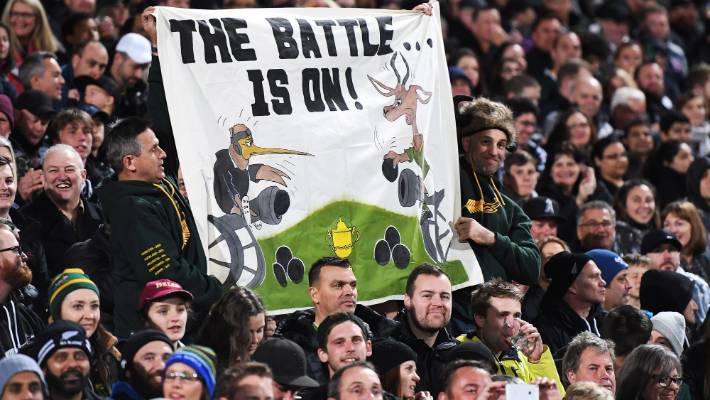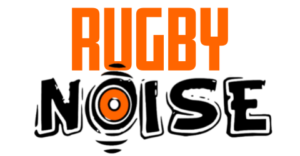Rugby is undeniably one of the most popular sports in the world by virtue of its worldwide fanbase, which is estimated to be in the hundreds of millions. The sport does indeed have a following in arguably every country and across every continent in the world and is considered to be the antecedent to various other similar sports like American football and Australian rules football. There are also a number of countries that consider rugby to be as much a part of their culture as it is a sport. Rugby is such a crucial part of these countries’ identities that it is considered their national sport. There is however one country where rugby is law.
What country is rugby the most popular? Rugby is the most popular sport in New Zealand, where it is widely regarded as their unofficial national sport. Since its inception in the late 19th century, rugby enjoyed an almost religious following that transcends demographics like age, gender, and occupation. Presently, there are well over 140,000 registered rugby players in the southwestern Pacific nation despite its relatively small population of a little over 5 million people.

Introduction and Mainstream Acceptance
The introduction, adaptation, and subsequent success of rugby in New Zealand can largely be credited to one man – Charles Monro. Fondly dubbed the “father of New Zealand” rugby, Monro got introduced to the sport while studying at a public school in England.
Upon returning to New Zealand, Monro introduced the sport to the Nelson Town Football Club and played a huge role in organizing the first-ever rugby match to be played in the country when he suggested that the club play against Nelson College.
As providence would have it, the then-headmaster of Nelson College was a former student of Rugby School – the Warwickshire-based institution where the sport was invented in 1823 – and agree to Monro’s proposal.
The historic match took place on May 14, 1870, in Nelson in front of a crowd of around 200 spectators. The Nelson Town Football Club won the clash 2-0 and despite the poor coverage of the match by local newspapers and the failure to mention that the sport that was played was actually rugby, its popularity spread across New Zealand like wildfire.
A Cultural Norm
Though rugby was a little late to the party in New Zealand as compared to Australian rules football, soccer, and cricket, it subsequently leap-frogged the three to become the country’s beloved sport and ideal pastime.
New Zealand’s rugged terrain and wet climate particularly helped the growth of rugby since the conditions were more favorable for it as compared to other sports like soccer or cricket which requires additional equipment.
Unlike in England and other neighboring nations where rugby was largely played by the educated middle-class who resided in suburbs near growing urban centers, rugby in New Zealand thrived across all communities and especially in rural areas where natives like the Māori indulged in it as early as 1876.
Rugby was particularly beloved since rules were applied sparingly allowing people from all walks of life to participate. The duration of rugby matches varied and there was no set number of players per team. It was also not unheard of at the time for teams to play a combination of sports in one fixture such as say Australian rules football or soccer in one half and rugby in another.
In the 1880s and 1890s, rules gradually began to be introduced as well as the awarding of points to encourage the flow of the game and discourage excessive kicking which was predominantly a characteristic of soccer.
Rules were also put in place to discourage rough practices like kicking one’s opponents as well as to formalize the inclusion of match officials (referees) and uniforms. Perhaps the most significant development was the formation of the New Zealand Rugby Union in 1892. At the time, there were already around 5000 registered rugby players.
Opposition and Unrivaled Dominance
Things were not all rosy for New Zealand, especially in the early to mid-1900s. Despite the success they enjoyed over their first tours of England and Australia, a controversy in a subsequent match against Wales put them at loggerheads with the Home Nations collective (England, Ireland, Wales, and Scotland) for a period through to the 1930s.
The First and Second World Wars also stifled their development due to the suspension of play. Perhaps their biggest challenge at the time was when Māori players were denied the right to participate in a tour to South Africa in 1928, 1949, and 1960 due to apartheid.
The 1960 tour was particularly controversial and faced stiff opposition from New Zealanders after their rugby union overlooked a petition with over 160,000 signatures that demanded the cancellation of the tour.
South Africa later acquiesced to the increasing pressure and reclassified Māori players as honorary words ahead of their 1970 tour. In 2010, South Africa and New Zealand apologized for the exclusion of Māori players in the three above-mentioned tours, righting a wrong that had long gone unaddressed.
Trophy Haul
With a test-match win rate of over 75%, New Zealand’s All Blacks are the golden standard when it comes to rugby. The team has been named the World Rugby Team of the Year a record 10 times with one of their players being named the World Rugby Player of the Year just as many times.
New Zealand also holds the joint record for most Rugby World Cup wins alongside South Africa with three. They have also held first place in the World Rugby Rankings for longer than all the other national rugby teams combined and have held the Bledisloe Cup for 19 years.
The team has also registered four Grand Slam victories and holds the record for the most consecutive test match wins alongside England. The All Blacks have also won seven Rugby Championships and 10 Tri-Nations titles out of a possible nine and 16 respectively.
New Zealand also boasts of having the greatest number of inductees into the International Rugby Hall of Fame with 18. Some of the notable players to grace their squad include John Kirwan, George Nēpia, Sean Fitzpatrick, Colin Meads, Richie McCaw, Dan Carter, Michael Jones, Christian Cullen, Joe Rokocoko, Doug Howlett, Tony Woodcock, Zinzan Brooke, and Jonah Lomu.
